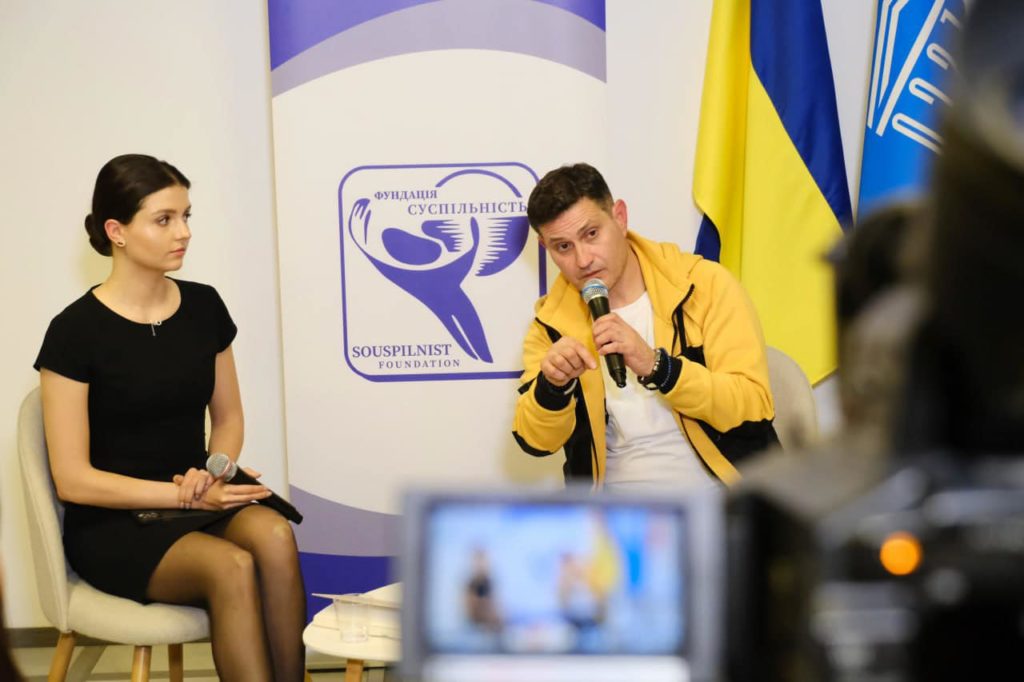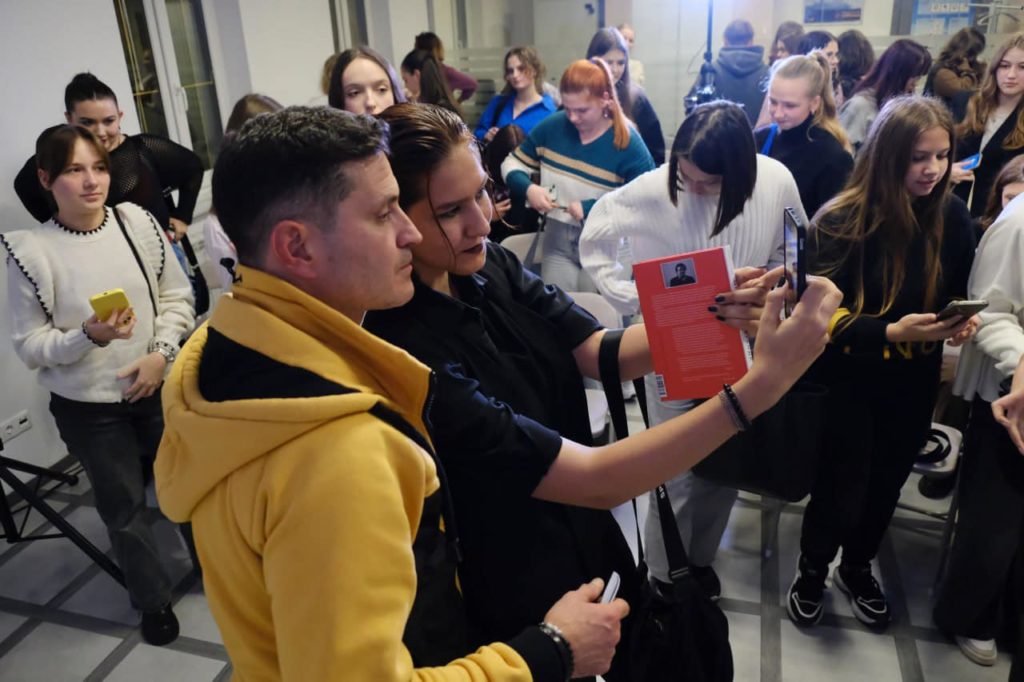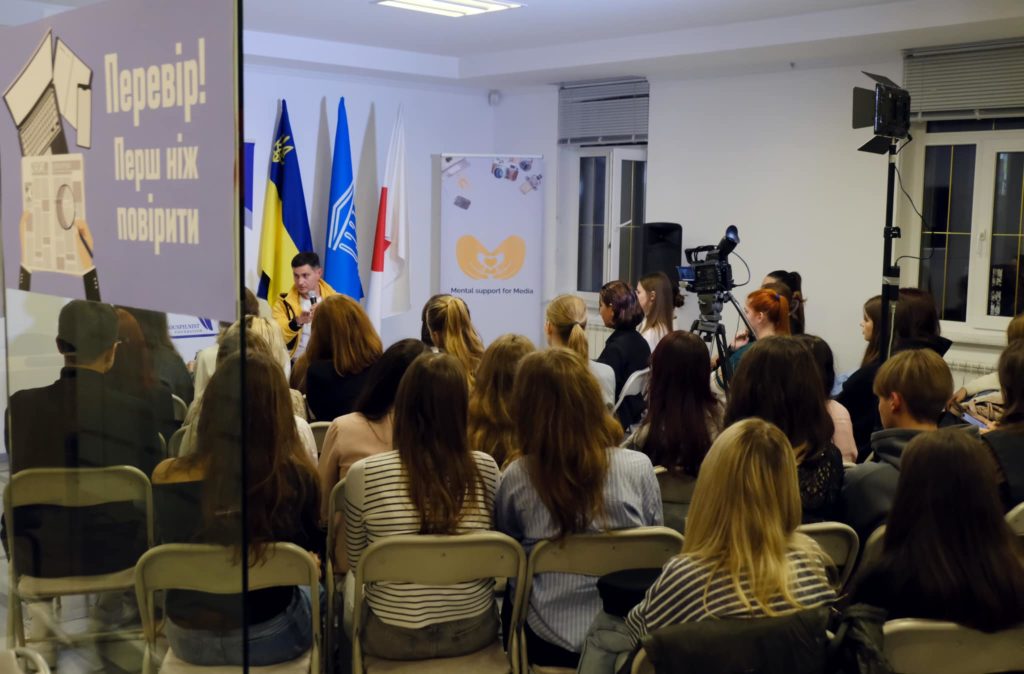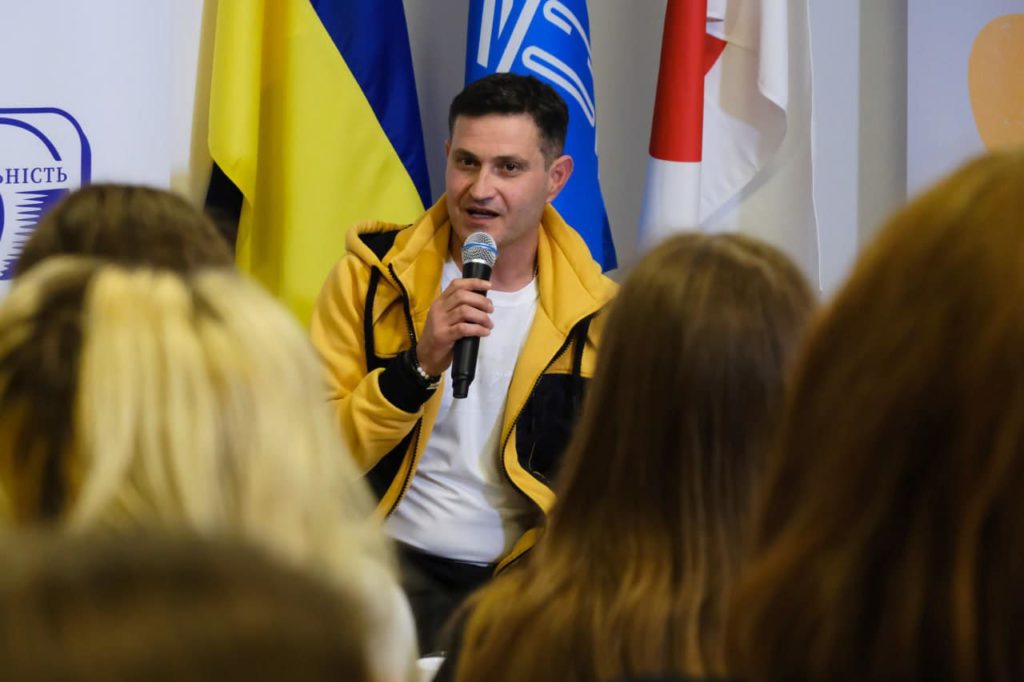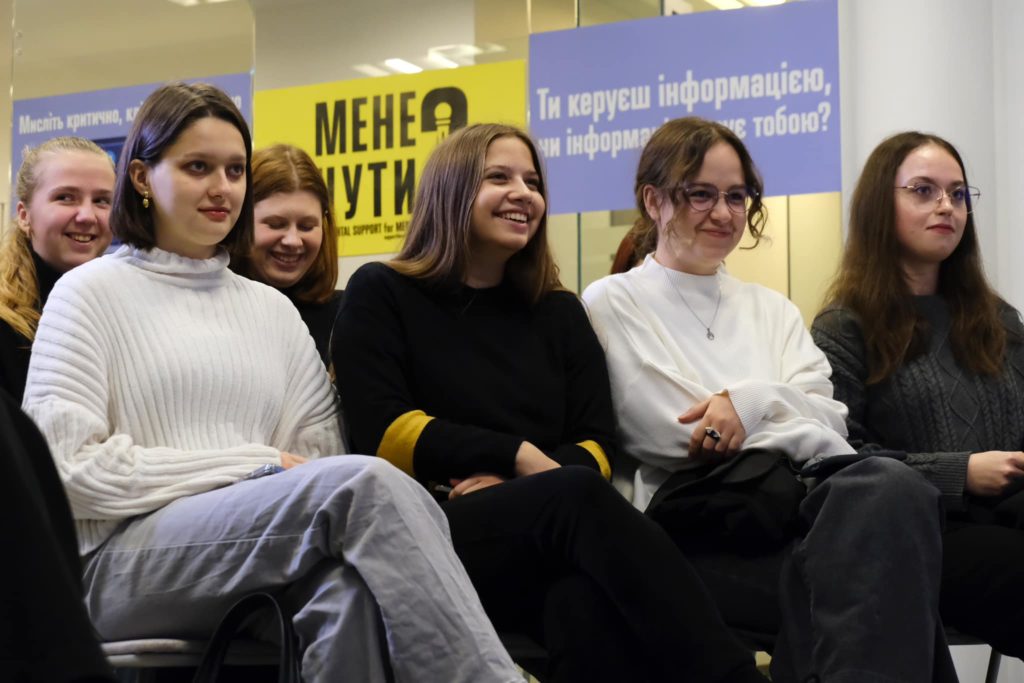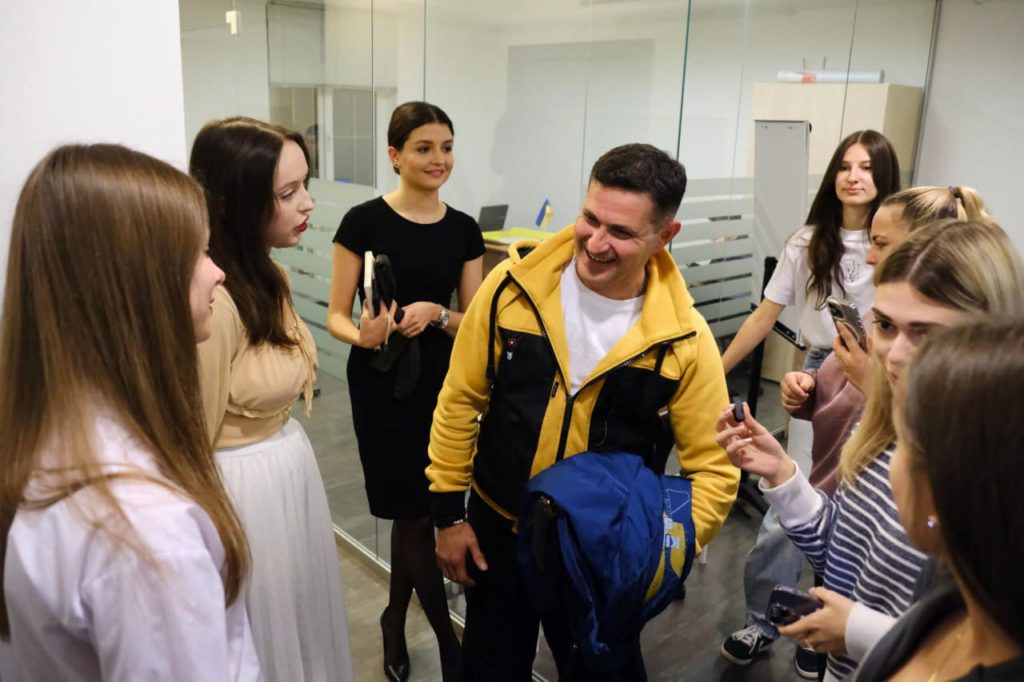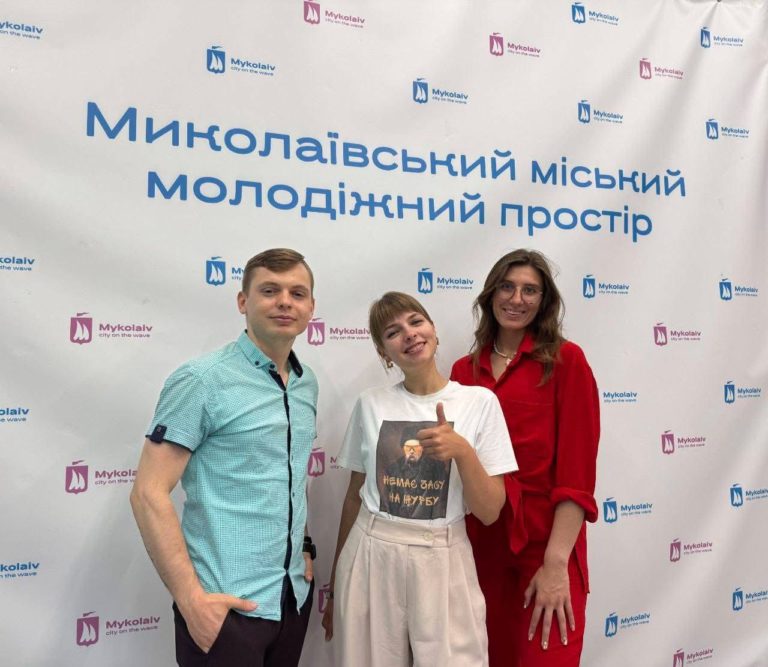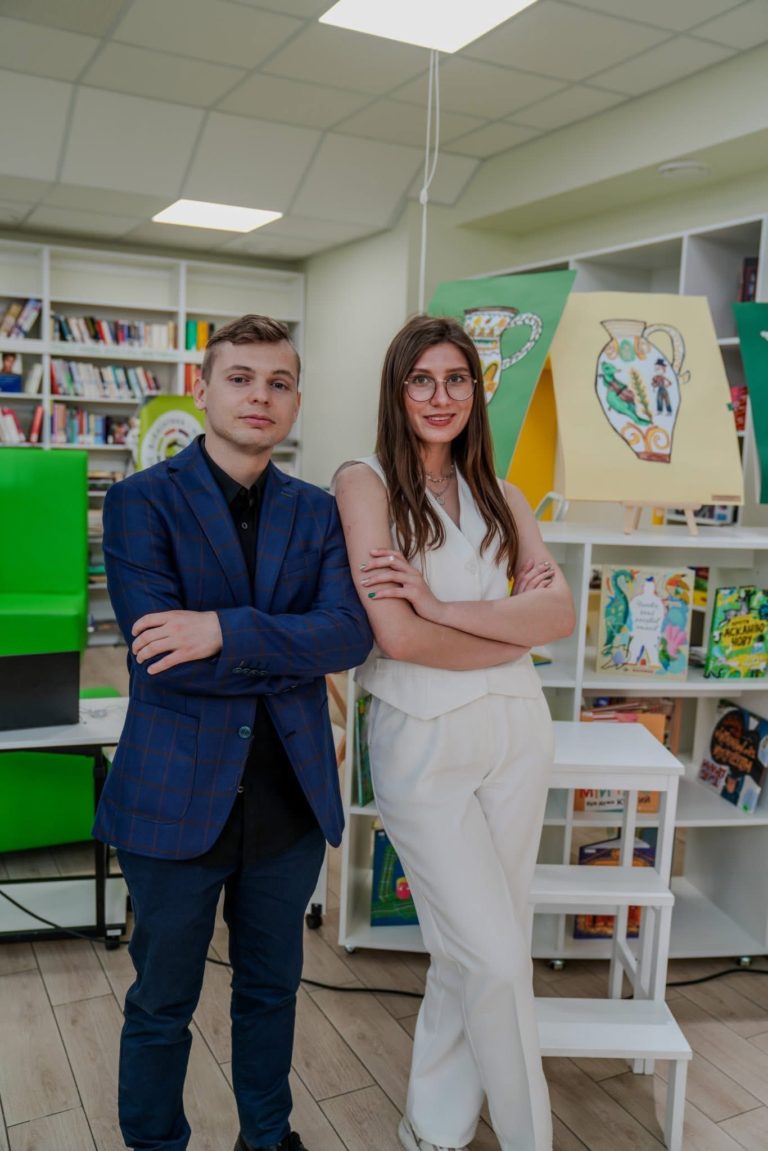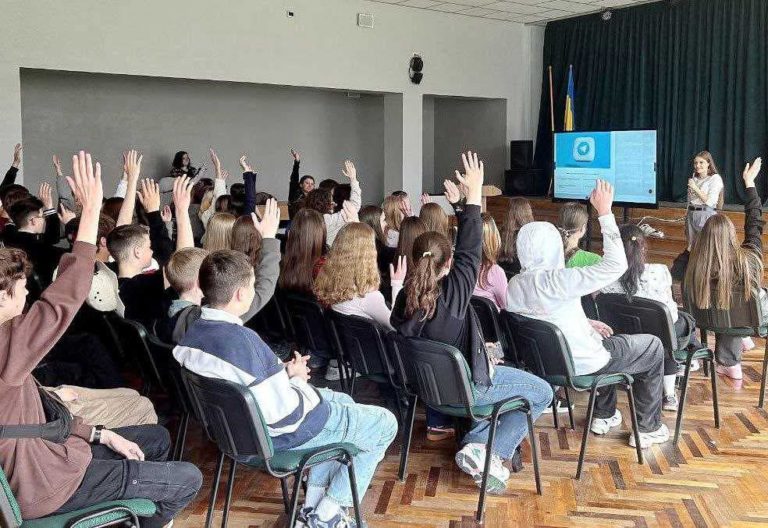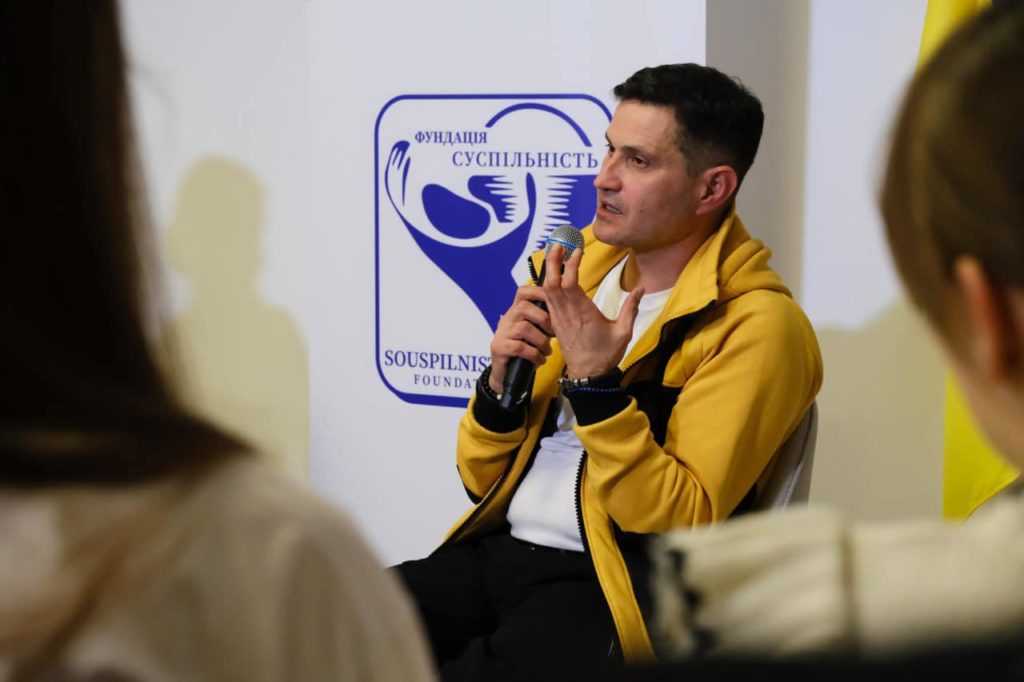
“I am not Akhtem Seitablaiev!” This is how the famous director and actor greeted the audience at the Critical Thinking Evening at the MIL House. This statement puzzled those present. The guest later explained that he wanted to show that all information should be questioned, and all claims carefully verified.
“Why do we pay attention to the ingredients in the products we buy? We read the label when choosing a cream to make sure there are no allergens. But we forget about thoroughly checking facts before believing what we hear,” noted Akhtem Seitablaiev. He eventually admitted that this is, indeed, his real name.
Emotions is what captures people in almost every message, Akhtem pointed out. The enemy knows this and constantly hooks those who react rather than analyze.
Additionally, the creators of fake news and manipulations build narratives intended to split society and divide people into hostile camps. Therefore, the director’s advice is not to help the enemy manipulate your mind and to continuously practice critical thinking. How? By asking a simple question: “Is this really true?”
Participants also discussed how to prevent Russian content from entering our media space. “It’s simple — don’t watch it,” advised the director.
We must create high-quality Ukrainian content that sets trends. It doesn’t matter if it’s a film or a TV program. Besides a beautiful picture, it’s also crucial to understand that the material affects a person, gradually building emotional-informational memory and shaping values.” Even a comedy, he believes, should tell a story, convey meaning to the viewer, inspire, and spark pride that this film will be shown abroad.
Other topics of the evening included: How to protect yourself from the impact of negative news; What criteria Ukrainian media must meet to be trusted; How to talk to people from territories liberated from occupation.
The project is designed and implemented by the Souspilnist Foundation in cooperation with UNESCO Ukraine and with the support of the people of Japan. The project is part of UNESCO’s broader efforts to support the safety of journalists and freedom of speech in Ukraine.
